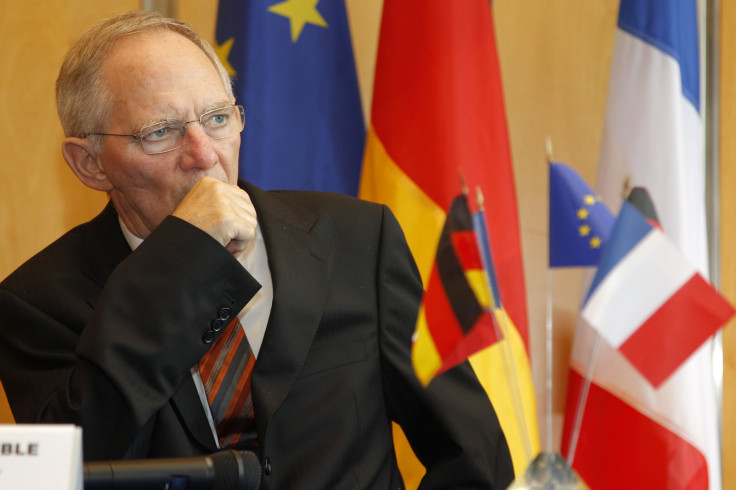Greek, German Finance Ministers “Agree To Disagree” On Greek Debt Solution

Just a day after the European Central Bank abruptly cut off a key source of Greek funding, Greece’s new finance minister Yanis Varoufakis capped off his tour of Europe with a stop in Berlin to meet his German counterpart Wolfgang Schäuble.
Varoufakis has been speaking with various leaders around the continent to persuade them to negotiate Greece’s $271 billion debt. Greece’s new Syriza government won the most recent election on an anti-austerity platform and has promised to end the country’s bailout program. But European leaders have continually said Greece needs to play by the rules and extend the bailout plan.
Varoufakis' most recent meeting didn’t end in compromise.
“We agreed to disagree,” Schäuble told reporters at a press conference afterward, emphasizing that he didn’t support Greece’s latest request for three months worth of funding that would give it time to get its financial house in order.
“We did not reach agreement because it was never on the cards that we would,” Varoufakis said, according to the Financial Times. “We agreed to enter into deliberations with the orientation of a joint solution to European problems that’s going to put the interests of Europe at the helm.”
Varoufakis has been asking leaders around Europe to support a three-month bridge loan that could, in theory, help Greece buy time to right its finances, while making promises that Greek leaders would be embarking upon a “frenzy of reasonableness.”
Schäuble wasn’t enthusiastic about the program, remarking that the proposed ideas “don’t necessarily go in the right direction,” according to the Wall Street Journal.
Berlin was just the latest stop in a series of meetings Varoufakis has been taking around Europe in an effort to garner support for various plans.
The talk came just a day after Varoufakis met with Mario Draghi, head of the European Central Bank. Soon after the meeting, the ECB announced it would no longer accept Greek government bonds as collateral for lending billions of euros to Greek commercial banks, the BBC reported.
Until now, Greece’s bonds were rated as junk, which meant the country had to rely on a special waiver from the ECB that allowed it access to cheap financing. Now, Greek banks can still access the money, but through Emergency Liquidity Assistance (ELA.)
This program means all commercial banks will borrow from Greece’s central bank at a much higher interest rate. The point is to isolate Greek banking problems from the rest of the eurozone if its central bank has any trouble with the loans.
In response to the Wednesday announcement, Athens' main stock index fell 9 percent, while shares of Greece’s top banks fell as much as 27 percent.
© Copyright IBTimes 2024. All rights reserved.












